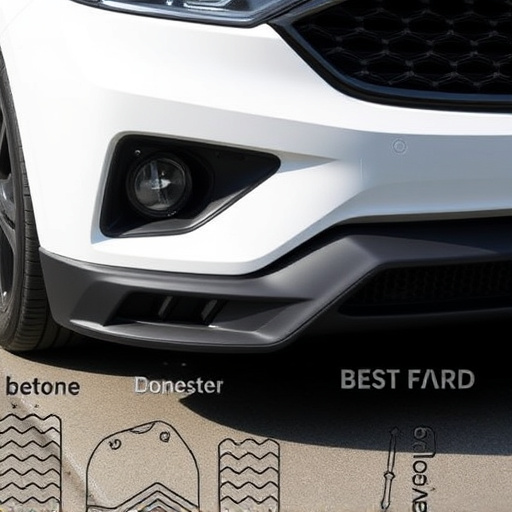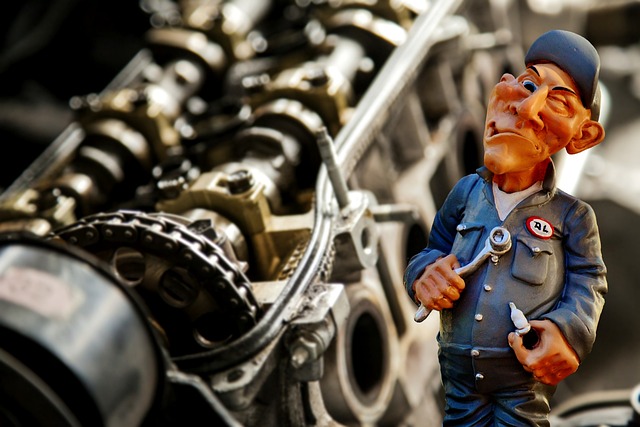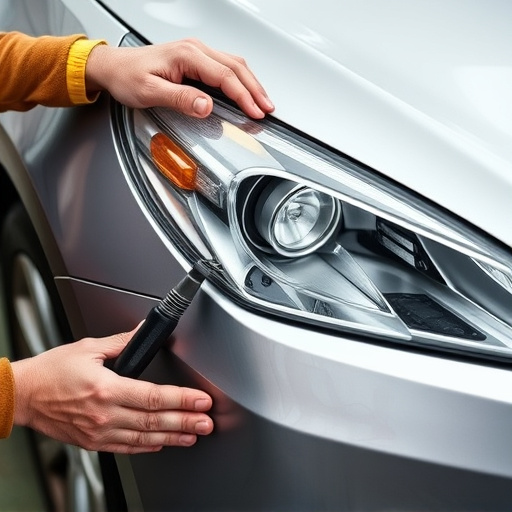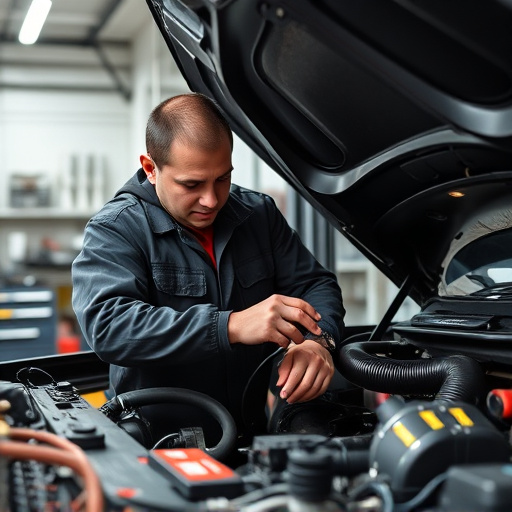Certified auto body shops adhere to strict industry standards for quality, safety, and environmental sustainability in vehicle repairs. Certification involves meeting guidelines, mastering diverse repair techniques, and implementing best practices in business management and customer satisfaction. These shops ensure structural integrity, optimal performance, and enhanced safety through accurate documentation and trained professionals, fostering trust, transparency, and ethical practices within the automotive industry.
In today’s automotive landscape, choosing a reputable certified auto body shop is paramount for quality repairs and peace of mind. This guide delves into the essential standards that define these shops, exploring both the rigorous certification requirements met and the profound benefits they offer. From enhanced safety and precision to customer satisfaction and industry-wide advancements, understanding these standards empowers informed decisions when selecting automotive care.
- Understanding Certified Auto Body Shop Standards
- Key Aspects of Certification Requirements
- Benefits and Impact on Customers and Industry
Understanding Certified Auto Body Shop Standards

When it comes to ensuring quality and safety in vehicle repairs, understanding certified auto body shop standards is paramount for both consumers and the automotive industry. These standards act as a blueprint that guides auto body shops in their practices, guaranteeing that vehicles are restored to optimal condition using the best techniques and materials. By adhering to these guidelines, certified shops not only protect their customers’ investments but also contribute to the overall reliability of the automotive market.
Certified auto body shop standards encompass a wide range of factors, from proper training for technicians in auto repair services to adherence to strict quality control measures during every stage of the repair process. These standards ensure that automotive repair is done with precision and expertise, addressing not just structural integrity but also cosmetic perfection. Moreover, they promote environmental sustainability by encouraging eco-friendly practices, such as responsible disposal of waste and use of sustainable materials in auto maintenance.
Key Aspects of Certification Requirements

Obtaining certification for an auto body shop is a multifaceted process that ensures quality and safety standards. Key aspects of these requirements involve adhering to industry-recognized guidelines, such as those set by recognized automotive organizations or governmental bodies. This includes mastering specific techniques for various vehicle repair services, including scratch repair and vehicle collision repair, to ensure precise and structural integrity in every fix.
Beyond technical proficiency, certification programs also emphasize business practices that promote customer satisfaction and ethical operations. This encompasses everything from managing shop operations to ensuring proper disposal of hazardous materials, all while maintaining a clean, safe workspace for both employees and customers. Certified auto body shops are distinguished by their commitment to excellence, prioritizing not just the repair of vehicles but also the overall vehicle collision repair experience.
Benefits and Impact on Customers and Industry

Certified auto body shops play a pivotal role in ensuring high-quality standards across the automotive industry. By adhering to established certifications, these shops not only elevate the customer experience but also contribute significantly to the overall safety and reliability of vehicles. One of the primary benefits for customers is access to reliable and expert auto repair services, guaranteeing that their cars are restored to pre-accident condition or even better. This level of expertise ensures structural integrity, optimal performance, and enhanced safety features, which can have a profound impact on customer satisfaction and peace of mind.
Furthermore, certified body shops foster trust and transparency within the industry. They adhere to strict standards in car collision repair, ensuring that every repair is accurately documented and performed by trained professionals. This not only protects customers from subpar work but also promotes ethical practices across the board. The automotive industry benefits from a reputation for reliability, leading to increased customer confidence and fostering long-term relationships between shops, insurance providers, and vehicle owners.
Choosing a certified auto body shop ensures your vehicle’s repair meets high standards, safeguarding both its structural integrity and aesthetic appeal. By adhering to these stringent certifications, shops demonstrate commitment to quality, using advanced techniques and materials. This not only benefits customers with superior repairs but also fosters industry trust and transparency, making it easier to identify reliable service providers. Embrace the peace of mind that comes with selecting a certified auto body shop for your vehicle’s needs.














